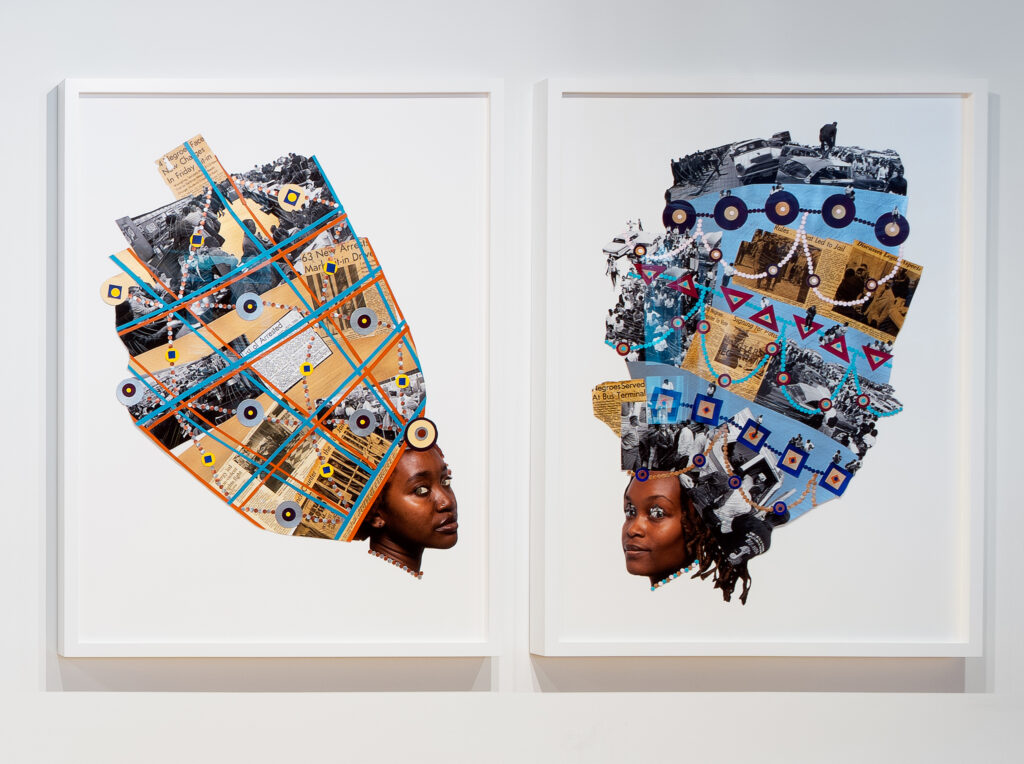
For the past seven years, multidisciplinary artist Helina Metaferia has been “building an army of women,”—that is, mixed-media portraits of women activists and their descendants. These portraits make up a series called By Way of Revolution and were recently on view in a group show called “Facial Recognition” at the Jane Lombard Gallery in New York City. The project is her way of combatting the increasing public erasure of marginalized groups’ contributions to history. It is also a personal project—Metaferia grew up outside of Washington, D.C., as a first-generation Ethiopian American, and activism runs in the family. Her father teaches political science, and her mother was president of the Center for the Rights of Ethiopian Women. When her mother died, Metaferia “was thinking of her legacy and the legacy of activist women of color, and oftentimes how their contributions are often overlooked in liberation movements.”
Metaferia has made 74 of the 100 portraits she has planned. She photographs the sitters in her studio, where she speaks to them about their heritage and inspiration for activism. Then she creates life-size prints of the photos. She adorns each portrait with various painted- and drawn-on elements, plus a headdress collaged from archival photos of other BIPOC activists, to show that “these women are held in high esteem,” she says. “That also draws from my Ethiopian-American heritage, where the crown and these headdresses are beautiful symbols of elevation in society. I wanted to elevate everyday people.”


